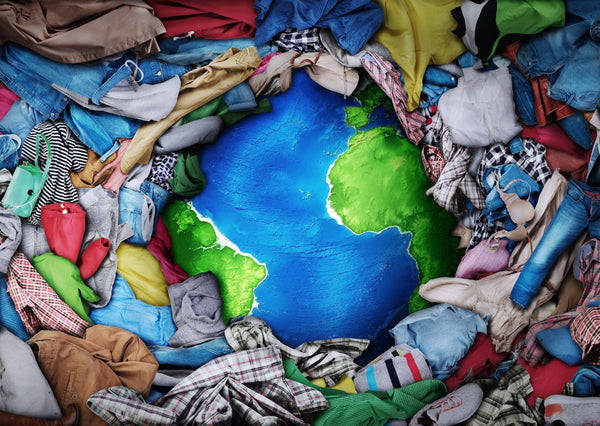
How often do you clean out your closet? Letting go of a bag filled with clothing every season might seem like it’s not a huge deal, but keep in mind that most people in the western world do this at least once a year. While trying to keep up with fast fashion by tossing out old items, we tend to forget that the Earth is the one who bears all the weight and suffers the most. Thankfully, the explosion of the sustainable shopping market (Thrift stores, Vintage stores, swap-clothing organizations, etc.) has gifted the planet with some breathing space.
Let’s take a deep dive into the market of sustainable shopping and why it has become a crucial component of the fashion industry.
By donating clothing, you’re making way for a cycle of more sustainable fashion choices. What might no longer be usable to you could be a steal deal for someone else. Ultimately, donating allows you to give these items a second life – rather than just a spot on the towering mountains of existing landfills.
Following new trends and keeping up with fast fashion impacts the planet in ways you would never even imagine. As society becomes aware about the implications of fast fashion, other, more eco-conscious trends have emerged. Sustainable consumer decisions are now at the forefront of the fashion industry; in fact, 45% of millennials and gen-Z refuse to buy from brands and retailers that are non-sustainable.
Buying pre-loved fashion is making a huge difference in our present clothing consumption with the resale of fashion items being one of the fastest growing segments of the industry. 6.65 billion items have been recirculated and 116 billion pounds of CO2 has been displaced due to people purchasing used items instead of new. If our society is able to keep it up, it could enable the fashion industry to cut around 143 million tonnes of greenhouse gas emissions by 2030.

Each year, an average of 56 million tonnes of clothing are purchased while an estimated 92 million tonnes of textile waste is created and stacked in overflowing landfills. In fact, research shows that the average person in America throws away an estimated 37 kilograms of clothing each year. Moreover, 10% of global greenhouse gas emissions are produced by the fashion industry. This plus the depletion and pollution of our water resources and marine life contributes heavily to climate change.
One of the best alternatives to counter this problem and achieve sustainability in fashion is by investing in timeless pieces that can transcend trends. Sustainable designer brands are additionally turning to Second life programs helping them recuperate the customers’ used clothing to repurpose them into something new. Respected brands such as Patagonia, Lululemon, COS, Nike, Adidas are all turning to the resale market as a way to move towards more sustainable practices. (source) Shilpah Shah, the co-founder and experience officer of the brand CUYANA, stated “[...] rising, industry-wide recognition that sustainability spans far beyond how products are made”. (source) This echoes the fundamental need for sustainability in our fashion industry at the present moment.

As a solution to a bigger problem, BEDI Studios offers consumers a chance to contribute positively to the environment by purchasing pieces to assure they will never end up in a landfill. With our Second Life initiative, all products are refurbished to new condition and are guaranteed to Last Beyond You. This program lets you return a piece to BEDI Studios for a 25% credit towards the purchase of a product of same or similar value. This is the ideal way to change styles sustainably and still feel good about your new purchase ! Our pieces are designed with materials and components that are beneficial to our planet as well as being constructed to tie into our lifetime guarantee. Our designs reflect our ethos of creating pieces that not only clean up our oceans and lands, but that are also timeless in every sense of the word.
As fashion and fast fashion specifically remains one of the top polluting industries on the planet, it is important for us now more than ever to think of alternatives to our way of living that will positively impact our environment.
What was the last great pre-loved piece that you found ?






























